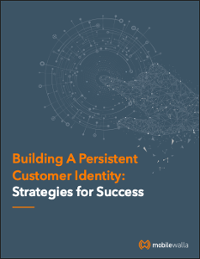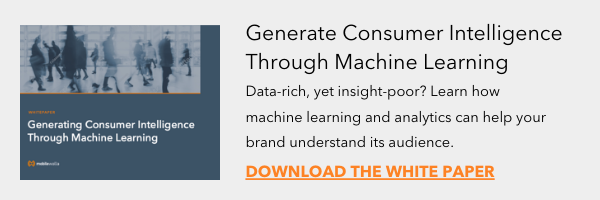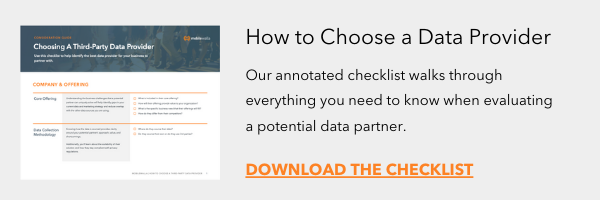Let’s admit it – marketers have a really tough job.
In a world which had rapidly transitioned to a digital-first landscape, it has become imperative for marketers to stay abreast of the latest technologies to help them achieve their business goals. The use of artificial intelligence (AI) is widely seen as the next generation of technologies which can be explored to reach your target customers with higher efficiency and precision especially within the domain of digital advertising.
Artificial Intelligence (AI) and Third-Party Data for Marketers
AI is a broad term, and it encompasses a range of tools and techniques. Machine learning (ML) and most recently deep learning (a subset of ML) allow businesses to go beyond traditional rule-based software systems by performing tasks intelligently without every rule or hypothesis needing to be coded in.1
Unlike traditional algorithms where humans need to manually add each rule, business context and variance, AI algorithms can extract complex patterns from a vast number of data points, and in doing so, are able to self-correct and learn without human intervention.
Related Reading: How AI and Machine Learning are Transforming the On-Demand Service Industry
The availability of large and sophisticated data sets, faster compute power and the emergence of new self-learning algorithms allows technology companies to combine AI and big data to drive efficiency, automation, prediction and even prescribe the next-best action based on data-driven insights and continuous learning.
Although a majority of Australian marketing professionals agree that AI will bring about increased effectiveness in the marketing industry, and 74% believe AI systems will make marketers’ jobs easier in the future2, it is also clear that marketers need a helping hand to get started.
Practical applications of AI techniques and uses within marketing
1. Robust Audience Segmentation
As marketers, we all know the benefits of audience segmentation and how it enables your business to have meaningful interactions with your customers.3 When audiences are segmented, you can customize your messages to increase relevancy and improve ROI.
Related Case Study: Data-Driven Mobile Ad Campaigns for a Global Technology Leader
Traditional techniques would see humans define these audience segments based on known data points like age, gender, demographics, location, transactions, broad interests etc. Using AI techniques allows us to go above and beyond the cognitive capabilities of humans and subject matter experts to take a much more nuanced approach.
The use of AI techniques allows the algorithms to create audience segments based on undiscovered patterns and removes human bias from the process. AI algorithms can quickly analyze vast amounts of data across omni-channel platforms, thus giving you the insight to learn unique qualifiers about your audience and amplify personalization on a much wider scale.
This enables effective customer targeting and the opportunity to superpower your segments with third-party data so that engagement can be even more personalized and relevant to further enhance the customer experience.
2. An AI-driven 360-Degree View for Improved Customer Experience
Customer expectations for brands are higher than ever. A report by Epsilon4 found that 80% of consumers are more likely to make a purchase from a brand that provides personalized engagement.
To provide a meaningful experience, we need the ability to recognize and identify customers as they interact with us across channels. While many of these interactions are visible to us, those that are not visible leave us with an incomplete picture of our consumer.
 AI-powered solutions that have developed a single customer view are able to understand individual interactions across channels and create a consistent consumer identity. These interactions can be associated with online and offline behaviors that are used to map the path to purchase.
AI-powered solutions that have developed a single customer view are able to understand individual interactions across channels and create a consistent consumer identity. These interactions can be associated with online and offline behaviors that are used to map the path to purchase.
The ability to pull this data together at the speed and accuracy that AI has, provides marketers the opportunity to offer a hyper-personalized customer experience and deliver the most appropriate and tailored messages that are most likely to convert the lead into a sale, at the best possible times to drive conversions.
3. Predictive Modelling for Strategic Marketing
One of the benefits of AI in marketing is its ability to identify ‘intent’ in a potential audience. AI technology uses patterns in data and statistical methods so the ‘intent’ can be gleaned from multiple drivers including geographies, demographics, or past behaviors and characteristics like the kinds of apps they use and how they engage online.
Businesses that are using AI in this way will have the advantage of being able to market to those already inclined towards a product or service, who are most likely to convert and potentially to the highest-value customers.
For example, when you identify the defining characteristics of your highest-value customers using predictive analytics, you can target audiences of prospective customers that share these traits (commonly known as lookalike audiences).
These case studies take a deep dive into a few examples:
- Helping a rideshare company grow its business by understanding its best customers
- How a global food delivery service identifies high-value target audiences
The benefits of understanding your best customers don’t end there. It streamlines your whole marketing approach and helps accelerate ROI with insights that inform brand partnerships, business strategy, customer experience decisions, and more.
Explore the AI Advantage
AI could indeed feel daunting and risky but imagine how it can work to your advantage. Efficiently segmenting your audience at scale, creating a single customer view, and predicting who are most likely to convert are only some of the wide-ranging benefits of using AI and third-party data today.
In a world rapidly evolving and digital transformation by COVID-19 becoming a reality, it is worth considering getting ready for the revolution to stay ahead of competition.
Most enterprises are experimenting with what this could look like organizationally and we are seeing massive investment in teams and technology to harness this opportunity. These organizations are exploring the advantage by testing these use cases first with the help of existing AI-powered MarTech or consumer intelligence experts available in the market today.
Sources:
1. https://www.forbes.com/sites/bernardmarr/2016/12/06/what-is-the-difference-between-artificial-intelligence-and-machine-learning/#39cccc792742
2. https://www.adma.com.au/resources/australian-marketers-optimistic-about-ai
3. https://www.smartinsights.com/ecommerce/web-personalisation/personalization-isnt-just-amazon-anymore/
4. https://us.epsilon.com/pressroom/new-epsilon-research-indicates-80-of-consumers-are-more-likely-to-make-a-purchase-when-brands-offer-personalized-experiences




